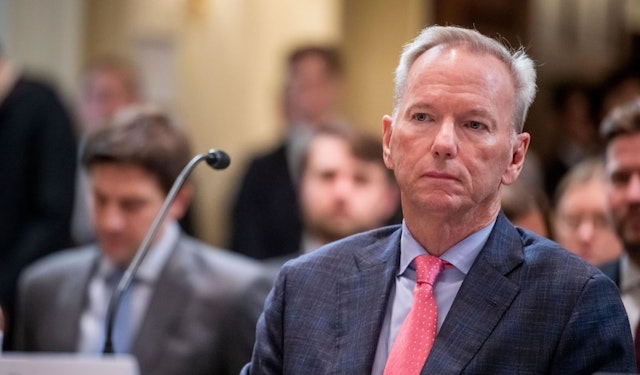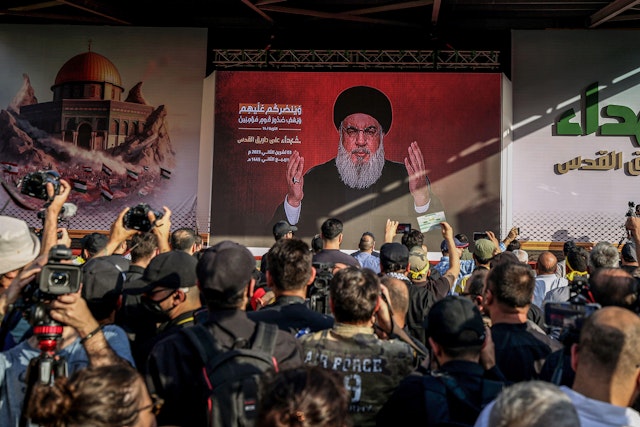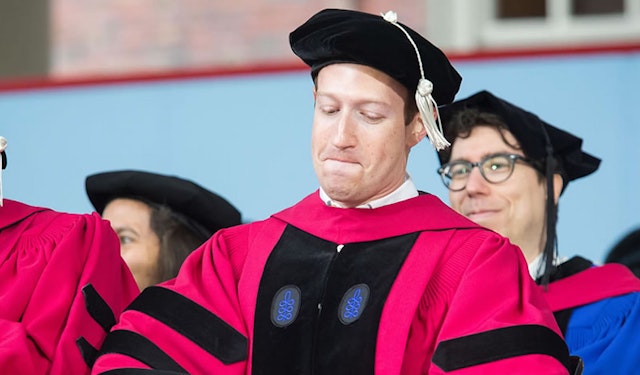Newly-uncovered emails show the White House was closely tracking the outcome of the Federal Trade Commission’s antitrust probe of Google, with an official contacting Google's lobbyist shortly before the agency’s decision to settle the case.

David Edelman
Despite assurances by the White House that it didn't discuss the law-enforcement matter with Google, emails show the White House’s internet advisor, R. David Edelman, contacted a Google lobbyist, Johanna Shelton, in advance of the FTC announcement in January 2013.
The White House aide requested Google's talking points and hinted at the high-level engagement on the issue. "I hear big news coming momentarily," he wrote, adding: "Obviously, lots of interest here at the WH."
It has been an article of faith that the White House keeps out of antitrust investigations since Richard Nixon ordered his Justice Department to drop a lawsuit against ITT, a corporate donor to his re-election campaign.
The Obama White House has long maintained it stayed out of the FTC’s Google investigation and respected the agency’s independence. After The Wall Street Journal detailed a flurry of White House meetings with Google executives preceding the settlement, a White House spokesperson said the FTC was “an independent agency and we respect their independent decision making.”
“Our staff is cognizant that it is inappropriate to discuss issues relating to regulatory enforcement,” she added.
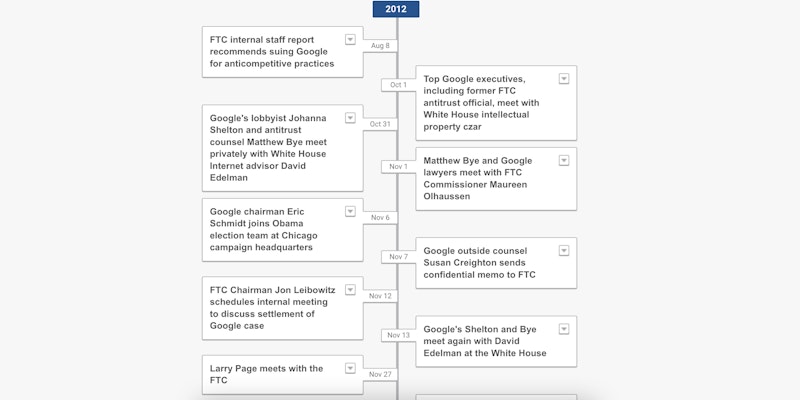
However, the new emails show a White House aide discussed the FTC's decision ahead of its announcement and informed the target of the investigation that the White House was closely monitoring the outcome. They add to a pattern of engagement with Google by White House officials in the lead-up to the settlement, including repeated meetings with Google's antitrust lawyers in the final stretch of the probe.
The meetings came on the heels of President Obama’s successful re-election campaign in which Google’s chairman Eric Schmidt had played an important role. The White House also met repeatedly with top FTC officials during that period.
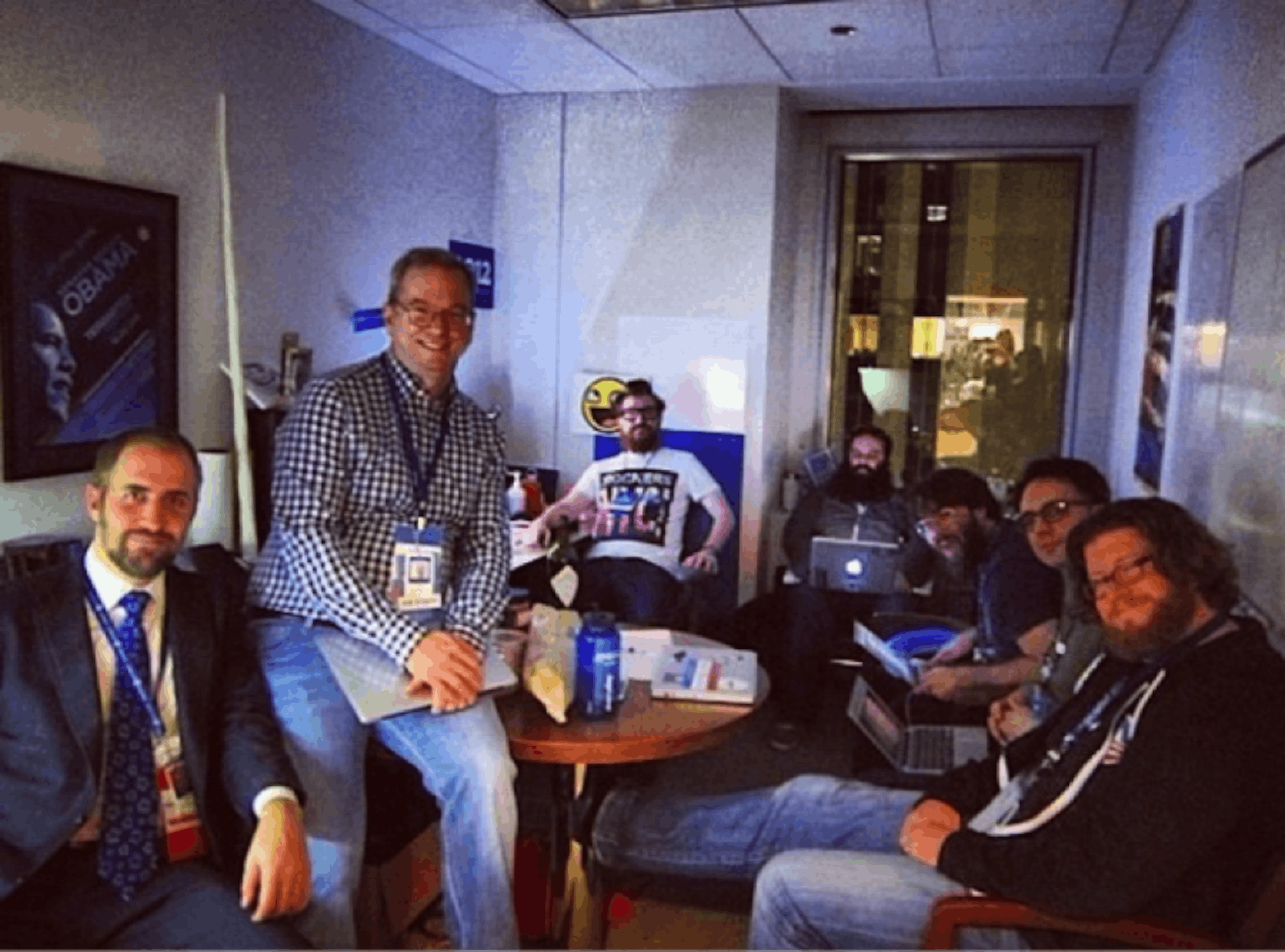
Eric Schmidt in the Obama 2012 campaign room on election day
The FTC settlement was the subject of renewed controversy after The Wall Street Journal revealed that FTC staff investigators had recommended a lawsuit against Google for abuse of its monopoly power and anticompetitive practices. The internal recommendations came to light after the FTC inadvertently released them in response to an open-records request.
In the weeks before the FTC settled the case — a sharp reversal from the FTC’s staff recommendation in August 2012 — Edelman met twice in the White House with Google’s antitrust lawyer, Matthew Bye. Citing people familiar with the matter, the Journal said one meeting was related to Motorola patents. Notably, the FTC’s final settlement directly addressed that issue, including a voluntary agreement by Google not to use Motorola’s “standard-essential” patents to block rivals from bringing competing products to market.
After the Journal story, Google’s Shelton emailed the FTC to demand that the agency’s chairwoman state its staff findings were “not inconsistent with the final agency decision.”
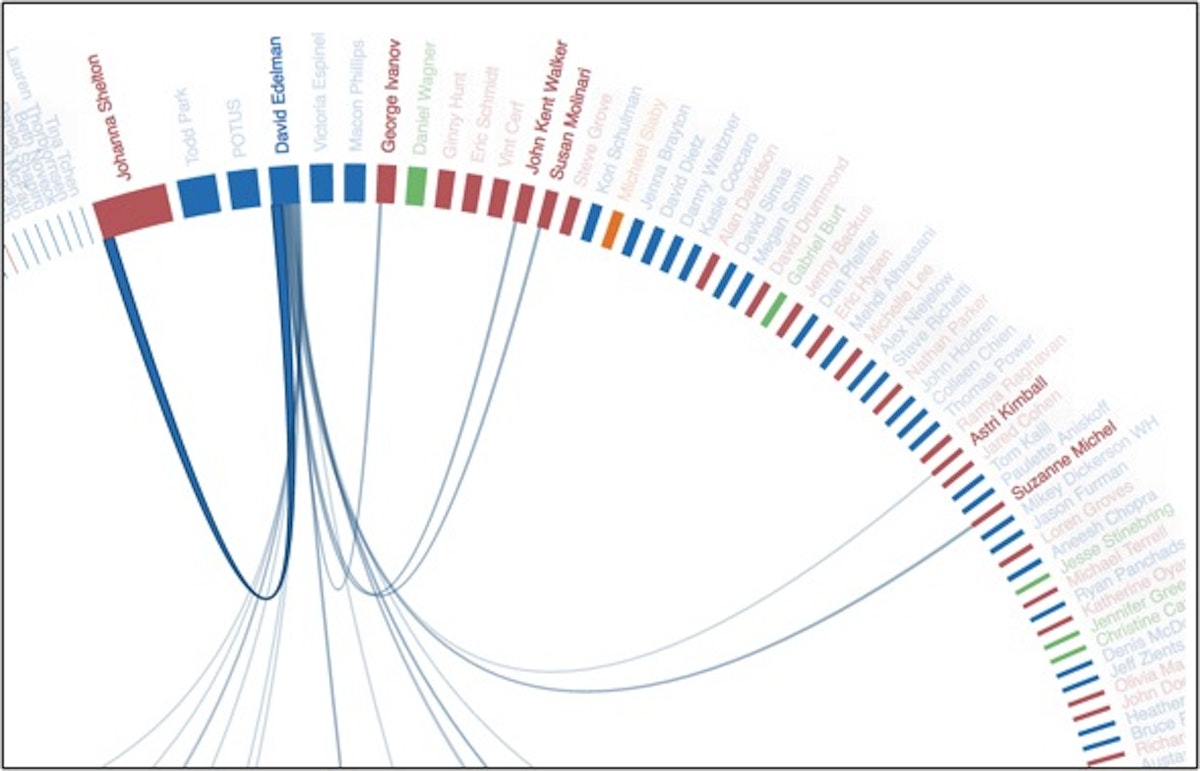
Two days later, FTC Chairwoman Edith Ramirez complied with Google’s demand in almost exactly the language its lobbyist proposed — at the same German panel event Google had suggested. “The commission’s decision on Google was consistent with the recommendations of its staff,” Ramirez said.
Edelman was an important and highly sympathetic conduit between Google and the White House, emails and meeting records show. Data compiled by the Google Transparency Project show that Edelman met with Google officials in the White House on at least 18 different occasions between 2012 and 2015, second only to President Obama and U.S. Chief Technology Officer Todd Park. His emails show he also met repeatedly with Google lobbyists at coffee shops dotted around Washington DC.
The emails were released by the Google Transparency Project as part of its forthcoming archive of communications between Google and government officials.
Timeline of Events
Click on the arrows for details and links to source documents
